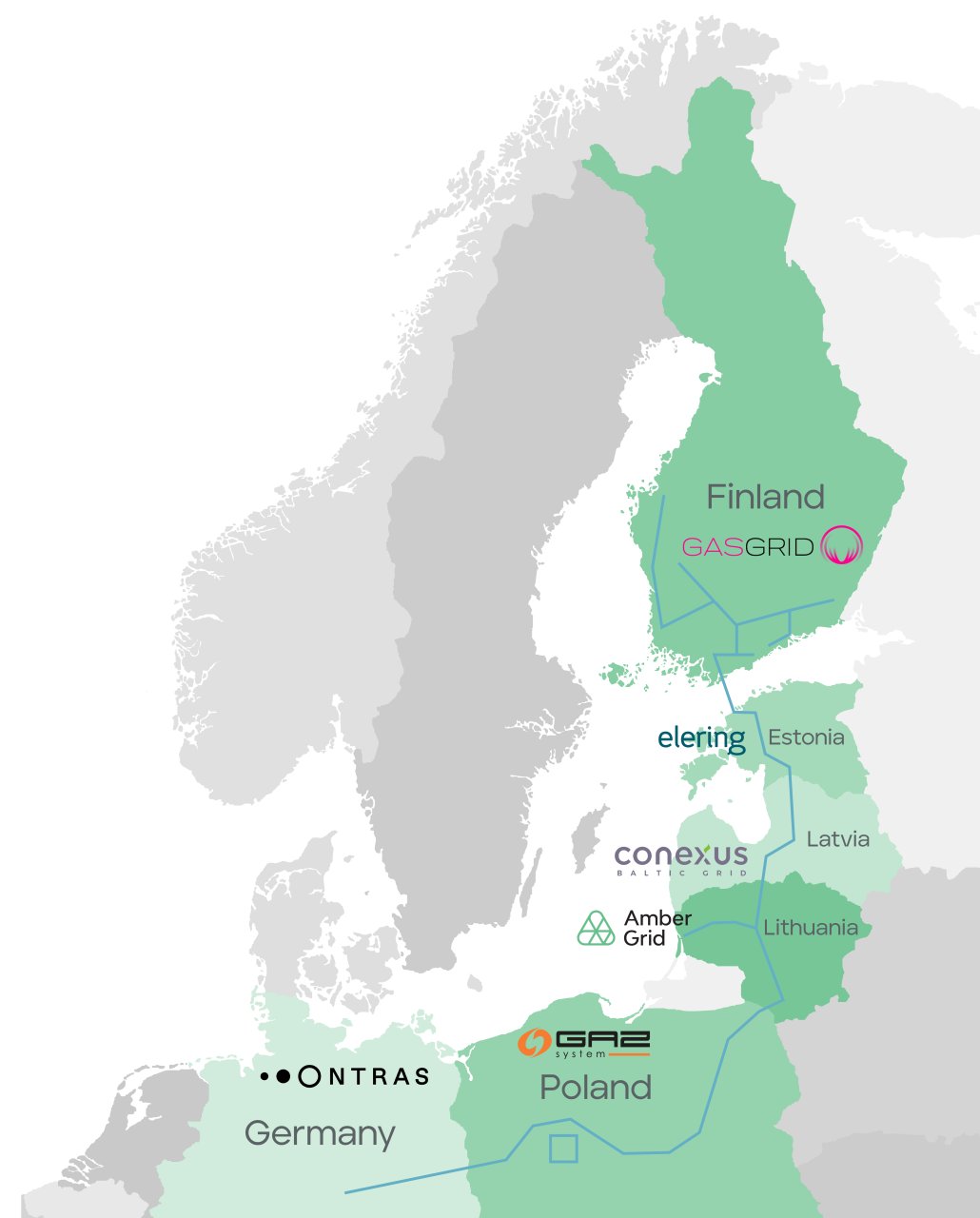
The European Gas Transmission System Operators Gasgrid Finland (Finland), Elering (Estonia), Conexus Baltic Grid (Latvia), Amber Grid (Lithuania), GAZ-SYSTEM (Poland) and ONTRAS (Germany) participating in the international project for the creation of the Nordic-Baltic Hydrogen Corridor signed a contract on the pre-feasibility study on the green hydrogen corridor. AFRY Management Consulting, the winner of the tender, will analyse the conditions for the development of cross-border hydrogen infrastructure from Finland, through the Baltic countries and Poland to Germany, as well as green hydrogen trends in the region. It is planned that the study, which will provide a comprehensive, fact-based framework to allow the optimal decisions to be made, will be prepared in six months, by the middle of 2024.
The goal of the Nordic-Baltic Hydrogen Corridor project is to create the connection between green energy production regions in Northern Europe with the main consumption centres in Central Europe. This project is expected to be implemented by 2030.
‘Having analysed the current economic situation, the consultants of the Pre-feasibility Study will provide answers about the potential of green and low-carbon hydrogen production and consumption in the region. They will also provide recommendations on the scope of the project, pipeline routing, capacities, financing, and risk management. In addition, potential hydrogen storage sites will be investigated. The results of the study will be extremely important for the entire region, which is currently actively looking for opportunities to develop the hydrogen ecosystem’, says Nemunas Biknius, CEO of the Lithuanian gas transmission system operator Amber Grid.
It is considered that this hydrogen corridor would create great opportunities for the development of energy and related ecosystems. It will promote the development of renewable electricity production, utilisation of renewable energy sources, accelerate the hydrogen economy development and contribute to the implementation of European climate goals. Furthermore, it will create conditions for investment in industrial and technological innovation along the entire pipeline route, reduce energy transportation costs, create jobs, and generate additional income for the states.
The Nordic-Baltic Hydrogen Corridor project aims to strongly support the regional and EU climate targets. Based on the recommendations of the Pre-feasibility Study on the hydrogen corridor, the project partners will make decisions on the further development of the project.
In December 2022, six gas transmission system operators, the project partners, signed a cooperation agreement on promoting the project together. In November 2023, the Nordic-Baltic Hydrogen Corridor was granted the status of the project of common interest (PCI) by the European Commission. Now the project has taken next important step, since the project partners have signed a contract for the Pre-feasibility Study, to further investigate the creation of Nordic-Baltic Hydrogen Corridor.
With the dynamic changes related to energy transformation and decarbonisation of the economy taking place in the Member States of the European Union, it is expected that hydrogen will become one of the main of energy carriers in Europe. Hydrogen will strengthen the EU’s energy security and will play an important role in reducing the dependence of energy-intensive European industries on imported fossil fuels and energy. In addition, significant contribution to the EU’s greenhouse gas emission reduction target is reached when fossil fuel consumption in the industry, transport and energy sectors is replaced with renewable and low-carbon hydrogen or fuels refined from it.